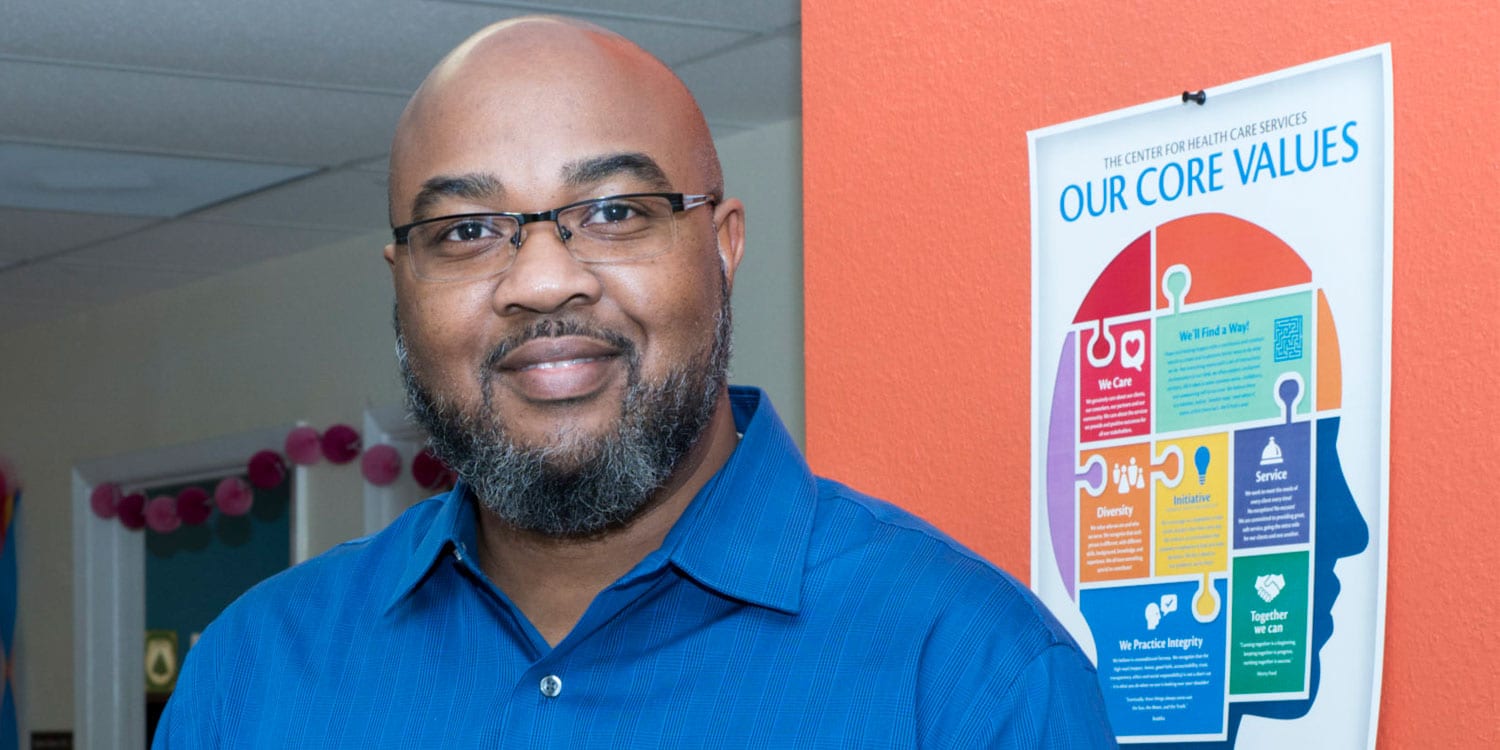Quentin Thomas, Director of Justice Programs
On a Tuesday morning late December, Quentin Thomas, Director of Justice Programs for CHCS, was approached by a man on the street who appeared disheveled and in desperate need of something. Anyone else might be quick to pass judgement, but not Quentin. As he would learn, the man simply needed directions, something Quentin would guide him across the street to find at a local café. The man didn’t speak English, but with some level of patience and kindness, Quentin Thomas found a way to meet him where he was, and connect him to a resource who could help — a Spanish-speaking server who was able to provide directions to Catholic Charities.
It is the spirit of helping others that has guided the steady course of Quentin’s life. While serving in the Navy, he discovered a passion for psychology, and eventually went on to earn a Counseling, MS from Texas A&M University Corpus Christi. After a few years of working in behavioral health settings Quentin found himself in the role of a lifetime — working alongside people with mental illness who are also involved in the criminal justice system.
“I chose this field because helping people make positive changes in their lives is what I feel I’m supposed to do. It’s a calling,” said Quentin. “The people I serve through these programs are just that — people. They’re not any different from anyone else, they’ve just had different circumstances. Many of them are dealing with substance use or mental illness, or both, but all of them are people,” he added.
Under Quentin’s direction, CHCS oversees 12 justice programs including Texas Correctional Office on Offenders with Medical or Mental Impairments (TCOOMMI), Court Ordered Treatment (COT), Assisted Outpatient Treatment (AOT) and the Community Reintegration Program (CRP) — to name a few. In his role as director, he oversees 115 team members with a caseload of 1,200 people and four locations, and builds and maintains relationships with community and criminal justice counterparts including parole officers, district attorneys and judges. But perhaps the most important part of his job is finding out what this population needs, and creating innovative solutions that can be packaged and funded to meet those needs.
It is estimated that 25 percent of people involved in the criminal justice system have some form of mental illness, and 99 percent of all people in jail or prison return to the community. Through these justice programs, clients have an opportunity to improve their life and change their circumstance, all at no cost. In some cases, participation in these programs is a condition of parole, probation, pretrial or a civil commitment requiring the client to meet with a judge on a weekly basis. All 12 programs share a common goal — to help people get better and stay out of the criminal justice system, and with Quentin at the helm, these programs have done just that — touting a recidivism rate of 5-to-12 percent compared to the national average of 50 percent.
Quentin recognizes that the success of these programs is due to the sometimes difficult job the Therapeutic Justice team performs every day. “This is the kind of work you don’t get praised for, and the population we serve is not always ready to seek help,” said Quentin. “It’s so important that we give staff reassurance, and let them know that what they’re doing is important. Often times they are helping people who are not appreciative of the help they are receiving, but our people continue to give them opportunity after opportunity. They’re the ones doing the hard work,” he added.
When Quentin isn’t at the office, he celebrates life by staying busy with his wife of 15 years and middle-school aged son who is an active member of the school band. A Louisiana native, Quentin also has a passion for cooking, and makes a mean gumbo, dirty rice and jambalaya.
But what keeps Quentin grounded is his passion for helping those who can’t advocate for themselves. “I’m no different from anybody else. Our circumstances may be different, but in time, I might end up in a similar situation. We will all need an advocate at some point in our lives, and you never know who that person might be,” said Quentin. “It might be someone who didn’t have a place to go one night so they slept near a house and had the police called on them. Or it might be someone who had an addiction that led them to committing a crime. That doesn’t mean they belong in jail. It means they need treatment for that addiction. We can’t ignore these people — they are our relatives, our neighbors. They need patience, support and understanding, and we need to do a better job of really listening to what they’re trying to tell us. Everybody needs somebody, and as human beings, it’s our responsibility to help each other.”




